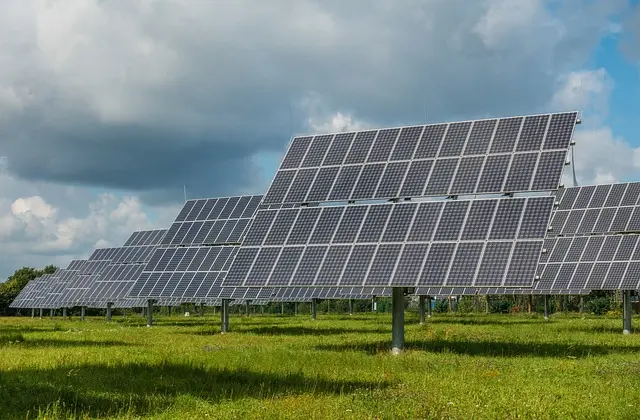
Solar energy has been gaining a lot of attention recently, and it’s easy to see why. With the world moving towards renewable energy, more people in the UK are considering solar power for their homes. It’s not just about saving the planet; it’s also about using the latest tech in a cool way.
In this article, we’re going to break down the different types of solar panels, look at some important UK laws and money-saving deals, and touch on why getting a pro to install your system might be the best bet.
Different Types of Solar Panels
When it comes to solar panels, there’s a bit of variety out there. Each type has its own perks and things to consider. Knowing the differences can help you pick the right one for your home and your roof’s space.
So, the main types you’ll hear about are monocrystalline, polycrystalline, and thin-film solar panels.
Monocrystalline Solar Panels: These are made from a single crystal structure, so they’re super efficient at making power and look nice. They’re also great for roofs because they make a lot of power in a small space.
Polycrystalline Solar Panels: These are made from several silicon crystals, which makes them cheaper, but they don’t make as much power as monocrystalline panels. They’re a good choice if you want something that’s not too expensive but still works well.
Thin-Film Solar Panels: These are light and bendy, which is cool for some uses, but they don’t make as much power. You’ll need more of them to get the same amount of power as the other types.
UK Laws and Money-Saving Incentives
The UK government is all in on solar power, and they’ve got some policies that can really make a difference for your wallet.
Smart Export Guarantee (SEG): This policy kicked off in January 2020, making sure that small producers, like homes, get paid for any energy they send back to the grid. It’s a nice way to help cover the cost of getting your solar panels up and running.
VAT Reduction: Solar panels are classed as renewable materials, so the UK gives a 0% VAT on Energy Saving Materials installation until 2027. If you’ve been thinking about going solar, now’s a good time to jump in.
Local Authority Grants: Some local councils offer grants or loans to help you out with the costs. It’s worth checking in with your council to see what’s on offer.
Technical Stuff You Should Know
There’s some techy stuff that’s worth knowing about before you get your solar panels.
Photovoltaic Cells: These are the heart of your solar panel, turning sunlight into electricity. The efficiency varies depending on the type, with monocrystalline cells usually leading the way.
Inverters: Solar panels make direct current (DC) electricity, but your home uses alternating current (AC). Inverters are key to converting that energy and making sure your system runs smoothly.
Battery Storage: If you want to make the most out of your solar power, consider adding battery storage. This lets you store the extra energy you make during the day for use at night or when it’s cloudy.
Should You Go with Professional Installation?
It might be tempting to try and install your panels yourself, but going with a professional can save you a lot of hassle and make sure everything works properly.
Expertise: Pros know what they’re doing, so they’ll get your system set up right, making sure it works efficiently and lasts a long time.
Safety: Installing solar panels involves working at heights and dealing with electricity. Without the right training and gear, it can be pretty risky.
Permits and Rules: A professional will handle all the necessary paperwork and make sure your installation meets local laws and standards.
Warranty and Support: When you go with a pro, you often get a warranty and some after-sales support, giving you peace of mind and protecting your investment.
Wrapping It Up
Solar panels are a great way to cut down on your electricity bills and do your bit for the environment. By understanding the different types of panels, staying up-to-date on UK laws and incentives, and knowing the technical stuff, you can make a smart choice for your home.
If you’re ready to take the leap towards a greener future, think about getting a professional to install your system. It could make all the difference.
